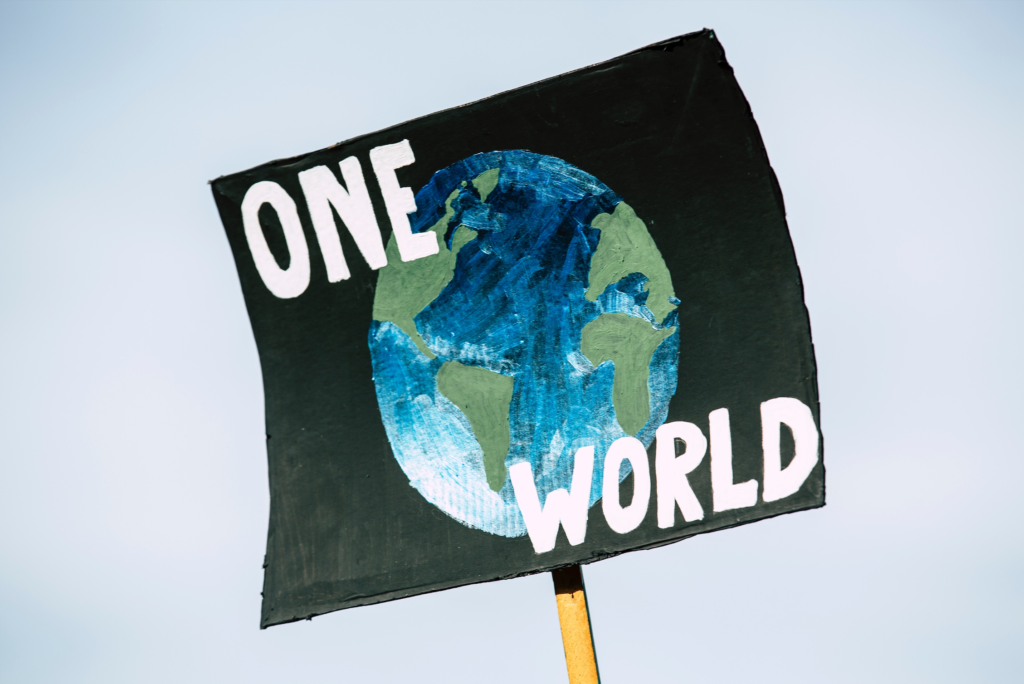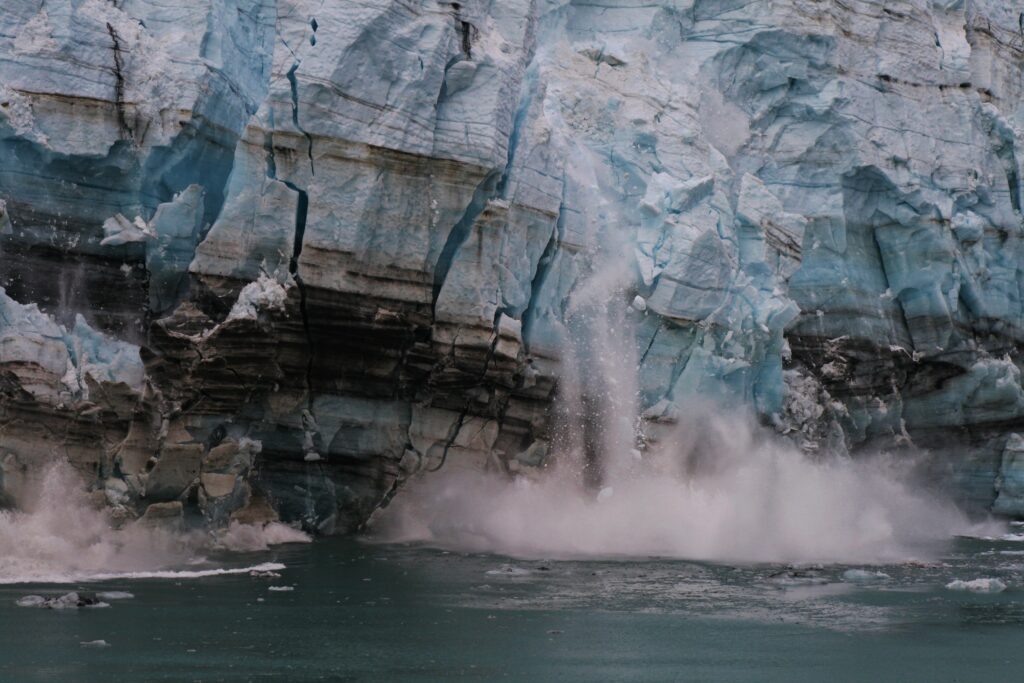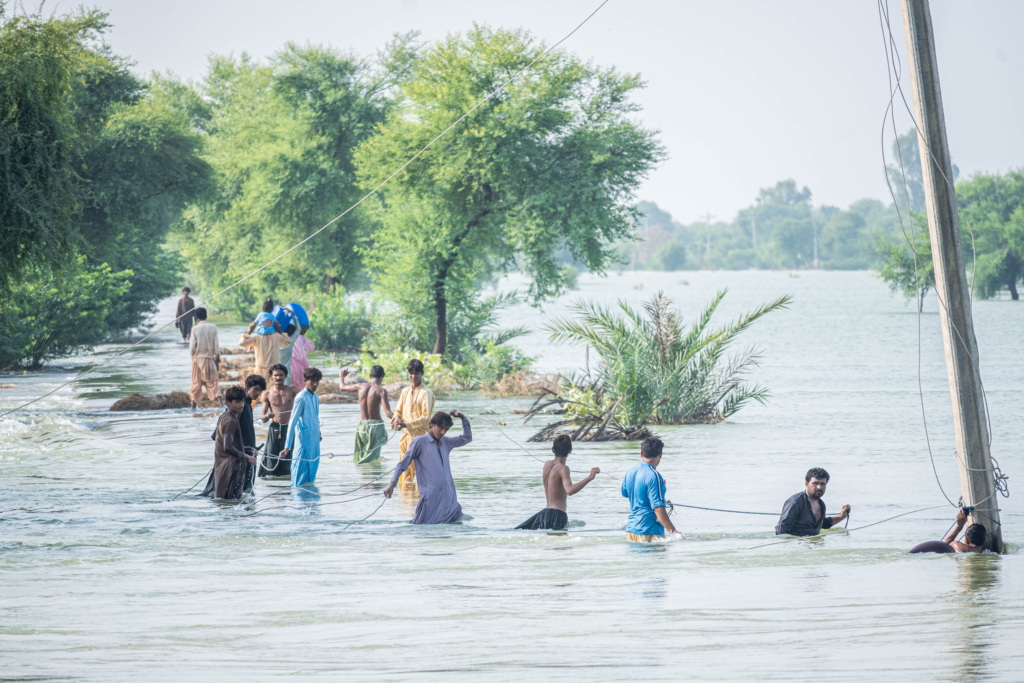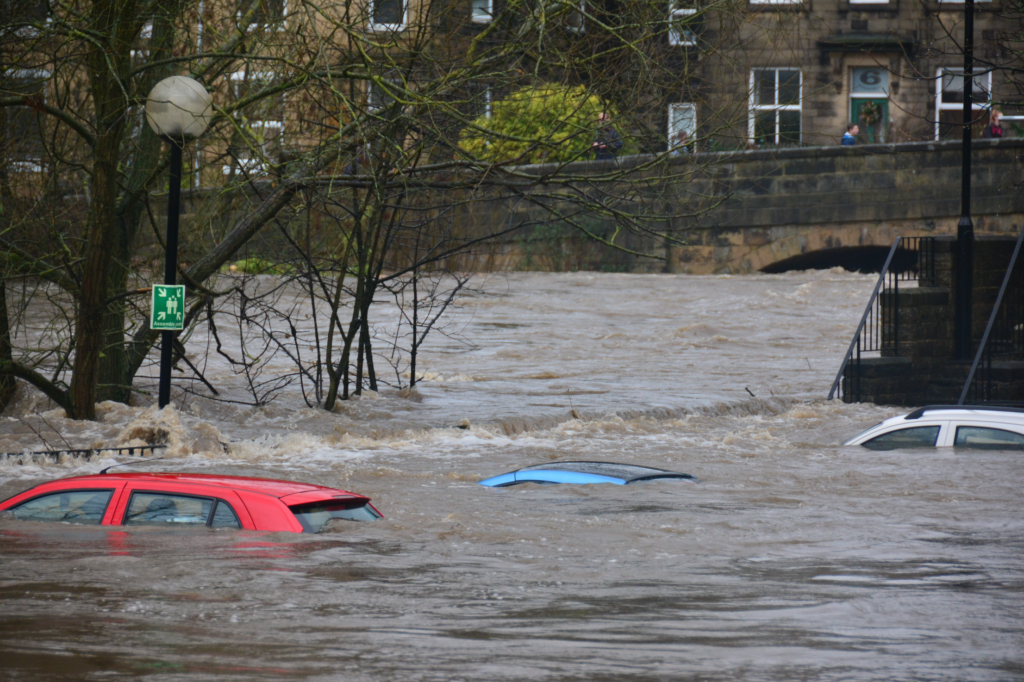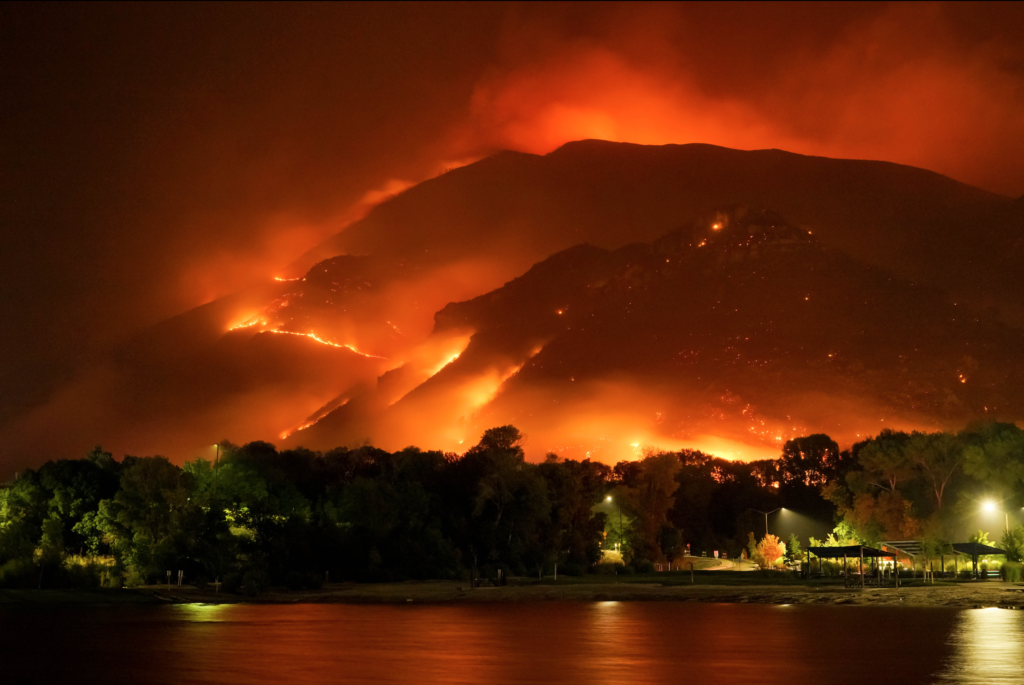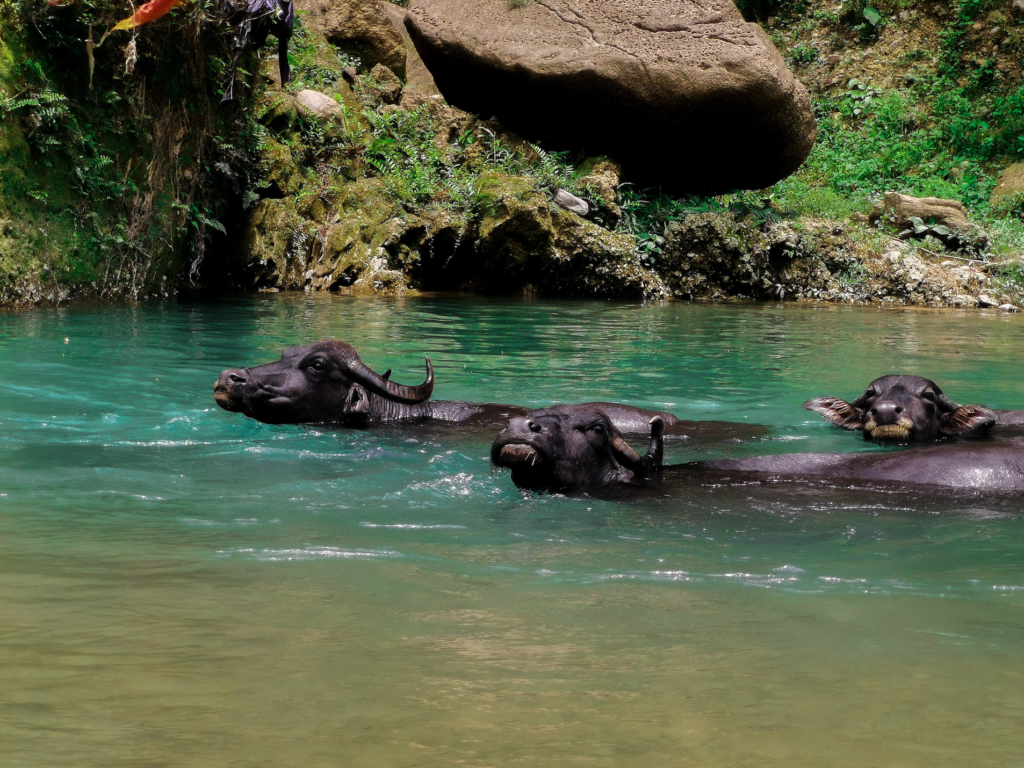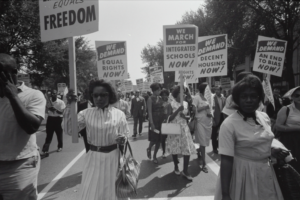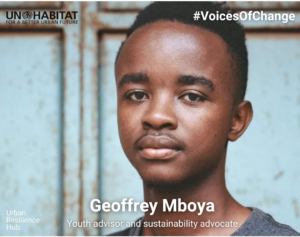The 10th of December 2023 marked the 75th anniversary of one of the world’s most revolutionary commitments: The Universal Declaration of Human Rights. This historic document enshrines the inalienable rights that every person inherently holds as a human being.
Climate change represents one of the greatest challenges of our time, affecting communities worldwide. The reason for this is that it not only has environmental repercussions, but also directly threatens a range of fundamental human rights. Mary Robinson, former President of Ireland and United Nations High Commissioner for Human Rights, stated that “climate change constitutes the greatest threat to human rights in the 21st century”.
Given the commemoration of Human Rights Day, this article will explore how climate change threatens fundamental rights and examine ways in which society can work to mitigate its effects and protect the dignity of people. Addressing climate change is not only an ethical responsibility, but also an urgent necessity to protect and preserve the fundamental rights of present and future generations.
Human rights are universal, inalienable, indivisible, interdependent and interrelated. In their protection and promotion, the principles of equality and non-discrimination, participation and inclusion, accountability and respect for the rule of law must be observed.
Millions of people are already suffering the catastrophic effects of extreme weather events exacerbated by climate change. From prolonged droughts in sub-Saharan Africa, to devastating tropical storms sweeping across Southeast Asia, the Caribbean and the Pacific, to scorching temperatures that have caused deadly heat waves in Europe. The devastation that climate change is causing and will continue to generate indicates that it is code red for humanity.
Why is climate change a human rights issue?
Human rights are closely linked to climate change by its devastating effect not only on the environment, but also on our well-being. In addition to threatening our own existence, climate change is causing harmful impacts on our right to life, health, food, water, housing and livelihoods.
Firstly, the increasing frequency and intensity of extreme weather events threatens the right to life and to live in a healthy environment. Communities disrupted by hurricanes, wildfires and severe weather conditions experience damage to both their physical and mental health, as climate change contributes to the spread of disease, degradation of air quality and exposure to adverse climatic events. Highly vulnerable populations are the most affected, with disproportionate impacts on child and maternal health. Similarly, extreme weather events, such as floods and storms, push people to abandon their homes, forcing them to face precarious conditions in temporary settlements and jeopardizing their security and stability, violating the right to housing and an adequate standard of living.
At the same time, climate change intensifies water scarcity and the salinization of freshwater sources, directly affecting access to drinking water. This puts the health of communities at risk and exacerbates disparities regarding access to water, a vital resource for life and human well-being. This in turn is related to the aggravation of malnutrition, as climate change alters rainfall patterns, affecting agricultural production and increasing food insecurity, as well as spreading water- and food-borne diseases and altering the stability of food prices.
Yet, the worst effects of climate change are experienced by those who already find themselves in vulnerable situations due to factors such as geography, poverty, gender, age, belonging to indigenous communities or minority groups, national or social origin, and disabilities. Among those who face the highest levels of risk, we find populations from developing countries, especially if they live in coastal territories or small island states, due not only to their exposure to climate-related disasters, but also to underlying political and socio-economic factors that amplify the effects of such phenomena.
This is the case of Pakistan, which despite having been responsible for 0.4% of historical emissions since 1959, ranks as one of the most climate-vulnerable places in the world, according to the joint findings of the World Bank and the Asian Development Bank. In second place stand communities that suffer from environmental racism, since the effects of climate change and pollution associated with fossil fuels also have a different magnitude based on ethnicity, especially when environmental policy decisions discriminate against people of color and others who suffer ethnic, religious and linguistic discrimination, or exclude them from leadership positions in the environmental movement.
Thirdly are women and girls, as they are often relegated to roles and jobs that make them more dependent on natural resources, receiving no compensation for their work and labor. As a result, their capacity to adapt to climate change is lower, due to the obstacles imposed on them to access technical or economic resources or because they are denied land ownership. Lastly, children and youth are already suffering, due to their specific metabolism, physiology and developmental needs, a greater difficulty in accessing a series of rights, ranging from the right to water, sanitation and food to the right to adequate housing, health, education and development.
The Intergovernmental Panel on Climate Change states in its latest report published in 2022 that approximately 3.3 to 3.6 billion people live in contexts that are highly exposed to climate disruption.
Among them are also those affected by forced migration, as climate degradation and land erosion have pushed families and communities to move internally or across borders. According to UNHCR data, each year, “more than 20 million people must leave their homes and move to other parts of their own country due to the dangers caused by the increasing intensity and frequency of extreme weather events”.
Finally, Article 27 of the Universal Declaration of Human Rights becomes affected: the right to cultural, artistic and scientific life. In 2005, a study by the World Heritage Centre of the United Nations Educational, Scientific and Cultural Organization warned that climate change posed a threat to 72% of UNESCO’s natural and cultural heritage sites.
Indeed, climate change also has an impact on the availability of schools in some regions of the world, as well as on the number of spaces for artistic expression in any of its dimensions. In other words, climate change threatens both education and learning, as well as the possibility of transmitting from generation to generation the knowledge, culture and ways of life specific to each region of the world.
The irrefutable connection between the climate crisis and the violation of human rights highlights the need to incorporate a human rights perspective in the fight against climate change. To this end, climate action must be consistent with human rights obligations, standards and principles. In this regard, the Office of the United Nations High Commissioner for Human Rights has emphasized the fundamental human rights obligations and responsibilities of States and other duty-bearers in relation to climate change.
In order to ensure that climate change mitigation and adaptation efforts are adequate, coherent, and responsive to equality and non-discrimination criteria and are in accordance with human rights obligations, States must:
1. Mitigate climate change and prevent its adverse human rights consequences; 2. Ensure that all people have the necessary capacities to adapt to climate change; 3. Ensure accountability and effective remedies for human rights violations caused by climate change; 4. Mobilize the maximum available resources for sustainable and human rights-based development; 5. Cooperate internationally to address the effects of climate change; 6. Ensure equity in climate action; 7. Ensure that everyone benefits from science and its applications; 8. Protect human rights from corporate infringements; 9. To ensure equality and non-discrimination; and, 10. Ensure meaningful and informed participation.
Consequently, human rights norms and principles should inform and strengthen climate policy formulation, leading to policy coherence and sustainable outcomes.
States have an obligation to respect, protect, fulfill and promote human rights for all people on the basis of equality and non-discrimination. Integrating human rights into the fight against climate change is a legal and ethical imperative, as climate action must not infringe on the rights of individuals and human rights can enhance effectiveness and result in greater benefits for all sectors of society. The failure of governments to act to address climate change, despite compelling scientific evidence, could represent the greatest intergenerational human rights violation in history.
In conclusion, addressing climate change is not only an environmental issue, but also an imperative to protect fundamental human rights. Global collaboration, local action and individual awareness are essential steps to build a sustainable and equitable future. Therefore, on this occasion, it is essential to continue reflecting on how climate change, as a contemporary global crisis, directly threatens these rights, serving as a reminder of the interconnectedness between the health of the planet and human dignity.

